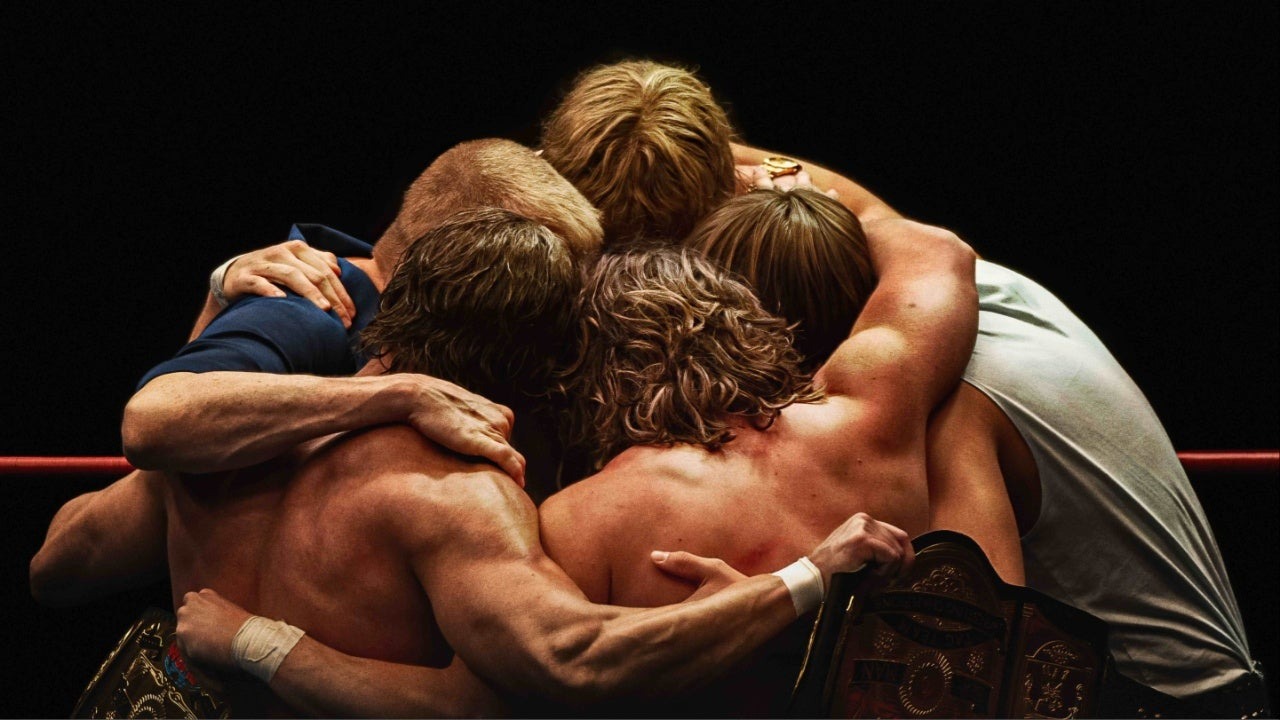
Review: The Iron Claw – An American Tragedy
“I used to be a brother, and I’m not a brother anymore.” – How a wrestling dynasty became a cautionary tale.
Heavy is the head that wears the crown, or in this case, the championship belt. The Iron Claw is the latest biopic about the wrestling dynasty of the Von Erichs, set in Texas during the 1980s. Directed by Sean Durkin, it stars Zac Efron, who plays Kevin von Erich, the oldest son in line to become the next champion, and Jeremy Allen White as Kerry, who is forced to compete alongside his brothers when his dream of competing in the Olympics is shattered. Harris Dickinson as David, the charismatic performer, and Stanley Simons as the youngest son, Mike, the musician of the family. Holt McCallany plays the patriarch of the family, Frits von Erich, a domineering figure who pressures his sons to follow in his footsteps and continue the legacy of ‘The Iron Claw', his signature wrestling move, along with Lily James as Pam.
One of the most notable changes to the film was the exclusion of the fifth brother, Chris Von Erich. Originally in the draft script for years, Durkin reflects on the decision in an interview with Business Insider. "The reality is so much worse than what is in the movie," he said. "You can't make a movie like that. There's just not enough time for it — it's so relentless."
Amongst the sparkling underwear, 80s soundtrack, hulking bodies, and workout montages, there lies a heart-wrenching tale of fraternal love and the heavy toll of a parent’s ambition. As the Von Erich brothers chase after their father’s aspirations, they are shadowed by the presence of a family curse. Each victory is stained with the knowledge of past losses, and each defeat carries the burden of familial expectation.
McCallany, as Fritz, is an overpowering figure; a scowl permanently resides on his face, and McCallany plays him brilliantly. A man with little to no words for his paternal affection towards his sons, he only serves to be their mentor and their coach because, ultimately, the family is his business. He provides for his sons but also puts his dreams above theirs and picks a ‘favourite’ according to who he deems the most successful. During the breakfast scene at the beginning of the film, this is established as Fritz lists all the achievements of each of his sons and ends it with “But the rankings can always change." On the other side, their mother Doris [Maura Tierney] expects the boys to look after each other and puts all her faith in God, not involving herself in the family business.
This pressure starts taking a toll on the brothers as they fight not for their father’s love but for his attention and the privilege of being the ones who bring home the title of ‘NWA World’s Heavyweight Champion.’ Against this backdrop, the brothers' personal relationships strain under pressure, with Kevin's fear of the curse casting a dark cloud over his marriage, Kerry's career decline leading to his end, and Mike being pressured to join the team despite having no care for the sport. Yet amidst the turmoil, moments of triumph shine through, such as Kerry's championship win and David's natural talent for showmanship.
Efron as Kevin is his best performance yet and is undeniably the emotional anchor of the entire film. His soft-natured and tender presence stands taller than that of the older brother, who strives to protect the younger. A He-Man-esque figure, physically equipped to take on the challenges within the ring but so deeply affected by sorrow caused by the familiar waves of loss while struggling to find meaning beyond his father's ambitions, This stands in complete contrast to McCallany’s Fritz, who, despite the loss of his sons’ lives, continues to stay apathetic and demands it from everyone else, creating a façade of stoicism that presents itself as masculinity.
Durkin isn’t afraid to show the spectacle of wrestling and the love he has for the sport without softening the turmoil that has come with it. Each fight is choreographed beautifully and brutally, showcasing the theatrics and showmanship behind the scenes and the physical damage both inside and outside the ring.
The Iron Claw is ultimately an intimate portrayal of fraternal love and loss, toxic family dynamics, and the suffocation of masculinity used as a shield to ‘persevere’. It is far from a larger-than-life tale and instead presents a bittersweet ending that leaves you with a heavy heart.
To purchase a physical copy of Global Eye Magazine with the article visit magcloud.
Post a comment